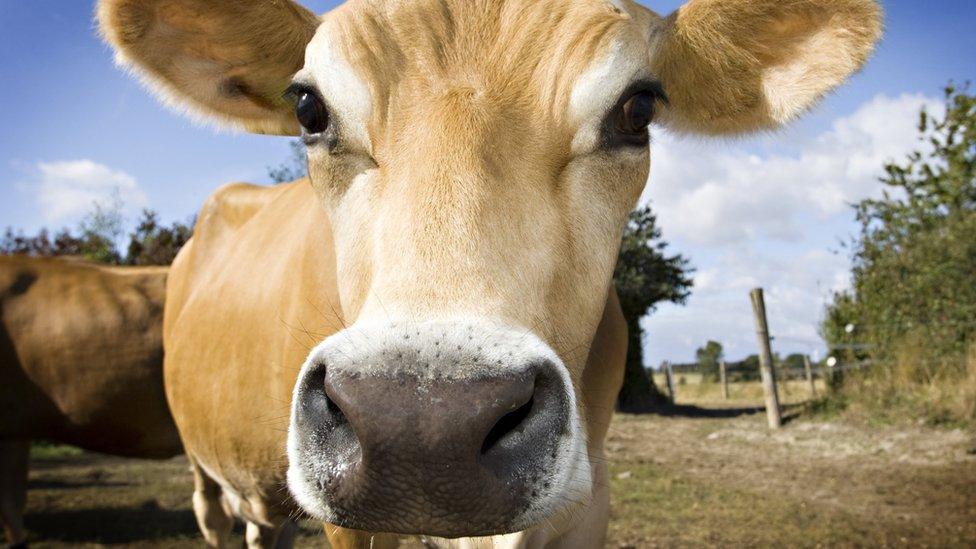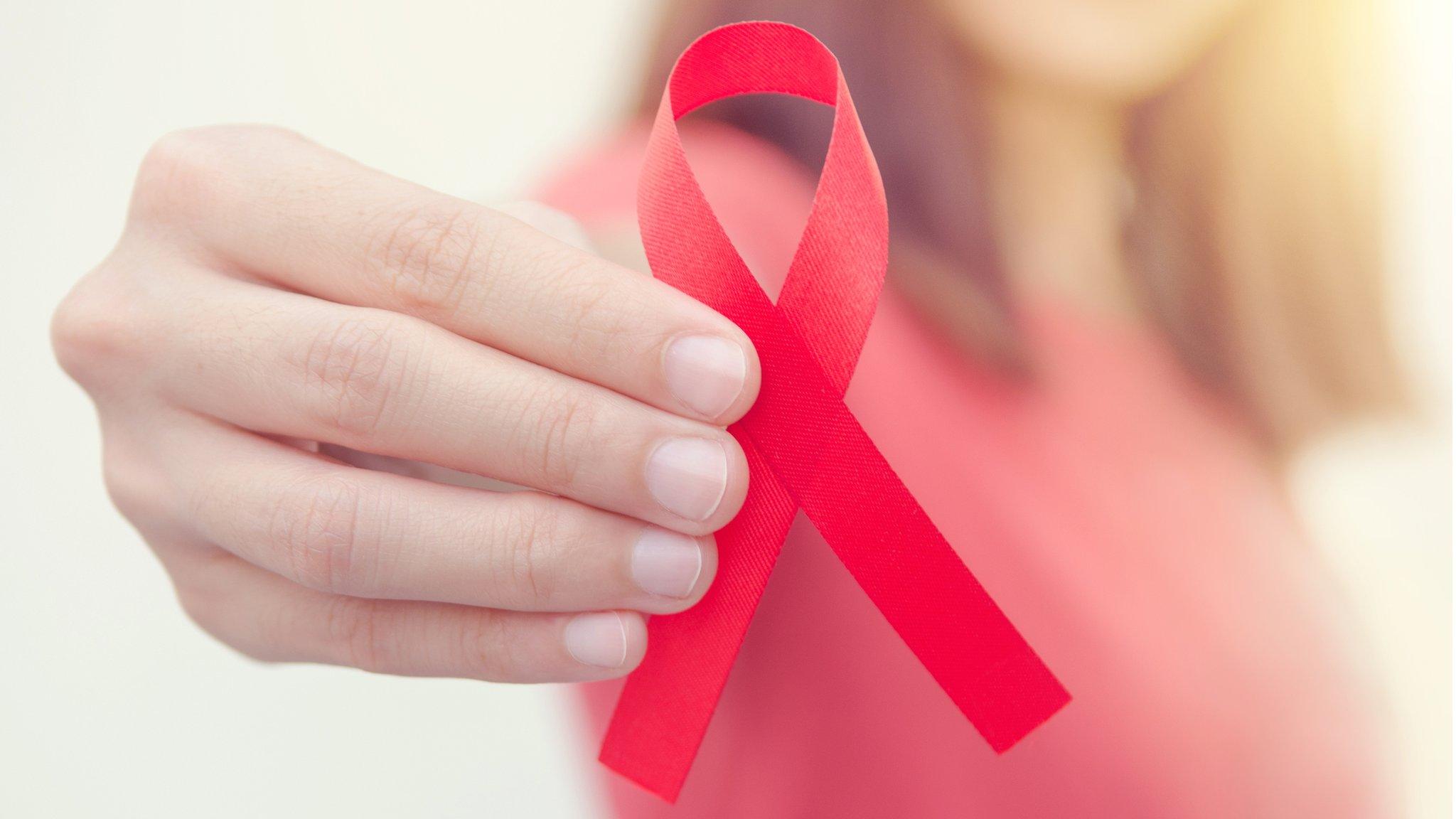'Mind-blowing' cows hold clue to beating HIV
- Published

Cows have shown an "insane" and "mind-blowing" ability to tackle HIV which will help develop a vaccine, say US researchers.
In a first for immunisation, the animals rapidly produced special types of antibody that can neutralise HIV.
It is thought cows evolved a supreme immune defence due to their complex and bacteria-packed digestive system.
The US National Institutes of Health said the findings were of "great interest".
HIV is a slippery and nefarious opponent. It mutates so readily that every time a patient's immune system finds a way of attacking the virus, HIV shifts its appearance.
However, a small proportion of patients eventually develop "broadly neutralising antibodies" after years of infection. These attack parts the virus cannot change.
A vaccine that could train the immune system to make broadly neutralising antibodies should help prevent people being infected in the first place.
But no jab can do the job.
Bullseye
Then researchers at the International Aids Vaccine Initiative and the Scripps Research Institute tried immunising cows.
"The response blew our minds," Dr Devin Sok, one of the researchers, told the BBC News website.
The required antibodies were being produced by the cow's immune system in a matter of weeks.
Dr Sok added: "It was just insane how good it looked, in humans it takes three-to-five years to develop the antibodies we're talking about.
"This is really important because we hadn't been able to do it period.
"Who would have thought cow biology was making a significant contribution to HIV."
'Remarkable'
The results, published in the journal Nature, external, showed the cow's antibodies could neutralise 20% of HIV strains within 42 days.
By 381 days, they could neutralise 96% of strains tested in the lab.
Dr Dennis Burton, a fellow researcher, said: "The potent responses in this study are remarkable.
"Unlike human antibodies, cattle antibodies are more likely to bear unique features and gain an edge over HIV."
Unusually for human antibodies, the broadly neutralising ones have a long and loopy structure. Cow antibodies are inherently more long and loopy.
So the cow immune system finds making the antibodies easily.
It is thought the cow's "ruminant" digestive system which ferments grass in order to digest it is a Wild West of hostile bacteria. So the animals have developed the antibodies needed to keep them in check.
It means cattle could eventually become a source of drugs to make more effective vaginal microbicides to prevent HIV infection.
However, the real goal is to develop a vaccine that encourages the human immune system to make the antibodies it currently finds a struggle.
That remains a significant challenge, but the cattle study could help point the way.
Dr Anthony Fauci, the director of the US National Institute of Allergy and Infectious Diseases, said: "From the early days of the epidemic, we have recognized that HIV is very good at evading immunity, so exceptional immune systems that naturally produce broadly neutralizing antibodies to HIV are of great interest - whether they belong to humans or cattle."
Follow James on Twitter, external.
- Published20 July 2017
